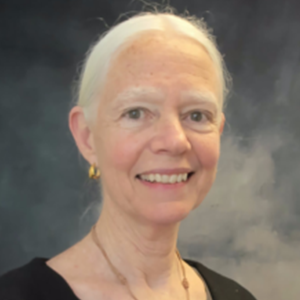A graduate from The University of New Mexico is now leading public health advocacy across the nation that focuses on the mental health of infants and children. She says it was her time at UNM that launched and inspired her career.
“I tell people I am a voice for babies,” says Sherri Alderman, MD, MPH, who has helped shape the lives of generations of young people as a pediatrician specializing in infant mental health.
Contrary to what may come to mind, infant mental health is not focused on giving babies a diagnosis like depression or anxiety. Instead, infant mental health is about the holistic well-being of babies and young children in the context of the well-being of their caregivers.
We look at infant mental health by imagining life from the baby’s perspective. Their closest environment is the family, the caregivers, the community that surrounds them. So those people’s lives have a big impact on babies’ mental health.
“We look at infant mental health by imagining life from the baby’s perspective,” says Alderman. “Their closest environment is the family, the caregivers, the community that surrounds them. So those people’s lives have a big impact on babies’ mental health.”
As Alderman, who received her Master of Public Health from UNM in 2000, explains, to truly give children the best start in life, we need to also provide care for the adults in their lives.
It was her experiences at UNM that led Alderman to think of herself as an infant mental health specialist. She completed her pediatric residency at UNM Hospital and, in 2006, participated in the inaugural cohort of a two-year intensive, interdisciplinary training in infant mental health at UNM’s Center for Developmental Disabilities. Led by Jacqui Van Horn, MPH, DSIII, IMH-E and Deborah Harris, LISW, IMH-E, the pioneering program brought together UNM students and residents from fields “that are usually very siloed,” says Alderman. MDs, doulas, nurses and early childhood educators joined the cohort to learn from one another and from nationally-recognized experts in infant mental health.
“It was reflective of how the infant mental health workforce is, professionally,” says Alderman.
She highlighted that the program that UNM offered was unique and rare.
“Infant mental health is still to this day not really present in medical education and it’s not present in pediatric training and residency programs, for the most part.” Alderman says it’s a situation that is reflective of the siloed nature of Western medical models and how the U.S. views health as a whole – something she works to change.
Now living in Portland, Oregon, Alderman holds a range of local and national advocacy roles in the public policy sphere. She’s helping to create and pass legislation that will improve the lives of parents, family members, childcare providers and society as a whole, in order to give babies the best possible start.
“I have a special interest in child rights,” says Alderman, who is part of a coalition working to get the United States to ratify the Convention on the Rights of the Child. The U.S. is the only member of the United Nations that has yet to ratify the Convention. Over the next few years, she and the coalition are developing a toolkit that will help individual states ratify or adopt the Convention independently of the federal government.
“The Convention on the Rights of the Child is a phenomenal document. It is inherently trans-cultural because it was crafted by experts from around the world. In it, parents are mentioned 14 times. So, it also recognizes that to realize child rights, one must also realize parent rights,” says Alderman.
In the U.S., “the dominant culture, there’s a lack of value placed on children as children – not as [the future workers who will fund] my future social security check, but as children - the value they give to society, the delight and the hope they bring,” she says. Alderman says this attitude is reflected in the lack of federally-mandated, paid parental leave and medical leave, which exist in other high-income countries. “An outcome of this [frame of mind] is the dominant culture doesn’t value parenting or parents, either.”
In public health, it’s widely understood that up to 80% of a person’s health outcomes are impacted by things like their physical environment, access to food, clean water and air, access to recreation and safety – known as the social determinants of health. Policies impacting a family’s social determinants of health also affect infant mental health.
As Alderman puts it, “There’s a lot going on in a [caregiver’s] world that is impacting their ability to make certain decisions, the options they have.” To care well for children, adults sometimes need help too. “A lot of us are not as helpless as an infant,” says Alderman, “but in a lot of ways there are things we have absolutely no control over as individuals, but society can make shifts when the right advocacy happens.”
Maternal and Child Health at UNM
If you are interested in the type of work Alderman ventured, the UNM College of Population Health offers a Maternal and Child Health (MCH) program as part of undergraduate and graduate studies, as well as a certificate. This program aims to provide specialized understanding of MCH and how to apply it in the field as a practitioner or researcher. Students gain skills related to the health and well-being of women, children and families, as well as leadership skills, interdisciplinary approaches, and prevention and help promotion techniques.